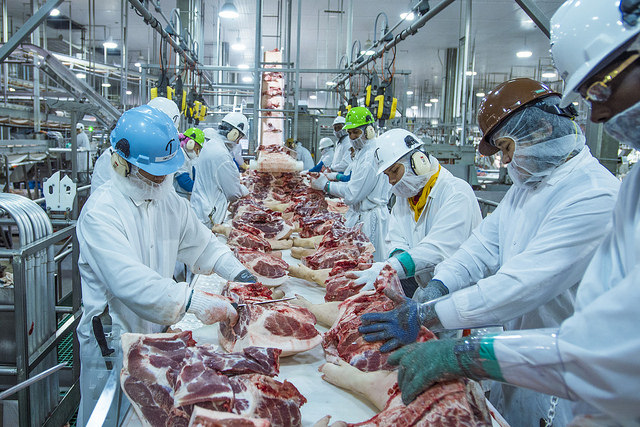



Germany takes aim at slaughterhouse sub-contracting to combat COVID-19
Germany is introducing a new law that compels meatpackers to employ staff directly in industrial slaughterhouses instead of relying on subcontractors.Reuters reports that the draft law aims to avert further coronavirus cases that are linked with poor working conditions in abattoirs.
German slaughterhouses have faced criticism for the widespread use of sub-contracted migrant workers from eastern Europe, with cramped accommodation and poor oversight suspected of accelerating local coronavirus outbreaks in meat plants.

Labour Minister Hubertus Heil has condemned the system of "sub-sub-sub-contracting" in abattoirs, where subcontractors rely on other subcontractors to get staff.
The draft law, introduced by Heil and seen by Reuters, bans sub-contracting in the industry's core business areas of animal slaughtering and meat processing. Firms are only allowed to outsource work in non-core business areas such as cleaning.
It also provides stricter regulation of shared accommodation for employees and a minimum quota of annual on-the-spot inspections in companies.
Small, family-run butchers with fewer than 30 employees are exempt from the new rules, which will apply from January 2021.
Chancellor Angela Merkel's cabinet is expected to pass the draft law next week after further input from other ministries.
Toennies, a large abattoir and meatpacking group at the centre of a massive coronavirus outbreak in western Germany, has said it would hire 1,000 workers directly by 1 September and stop using sub-contractors.
The Toennies plant in Rheda-Wiedenbrueck reopened its slaughterhouse and meatpacking operations last week after it bolstered health and safety procedures.
The site, particularly important for the German pig farming sector, closed in mid-June after about 1,500 workers tested positive for COVID-19. The outbreak led to about 600,000 people in the surrounding region being put back into lockdown, which has since been lifted.






